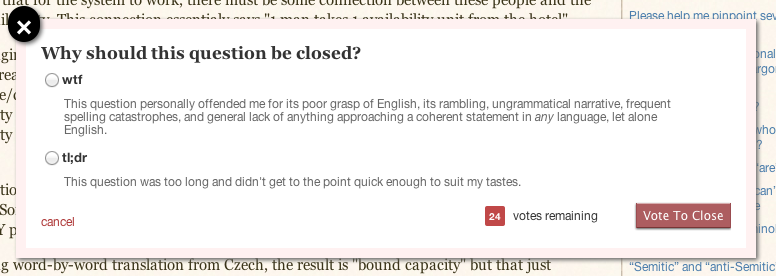(I am seeing your question for the first time after the migrate. I'll try to address both the original and the updated question.)
“Not a real question” is not a misnomer, for two reasons: (i) it has a definition in context, and (ii) it is actually common in English to use “not a real X” rhetorically to mean “not having the qualities that we expect a proper or suitable X to have”.
In context, “not a real question” is defined to mean “cannot be reasonably answered in its current form”. Once you define something in context, it becomes a technical term and it doesn’t so much matter what the general meaning is. So your apparent contradiction evaporates. A question is “not a real question” when it “cannot be reasonably answered in its current form”, and that makes sense.
When defining in context there is a practical consideration that the definition should not create a completely confusing situation. Its meaning should not be completely unrelated or contradictory to the general term. But that does not apply to “not a real question”, because of how we use “not a real X” rhetorically.
Consider the words gentle and gentleman. From the root *gen- (“beget” or “be born”), and cognate with genus and kin (and the kinder- in kindergarten), gentle once meant simply “born of a high-ranking family”, and gentleman meant “high-born man”.¹ And it made sense, rhetorically speaking, to say that “John is not a real gentleman” meaning that John, while high-born, lacks the qualities that we expect a proper gentleman to have. Notice we have made such rhetorical judgments so easily and so often that the word gentle has lost its original sense completely and the word gentleman is not far behind.
On to the metaquestion of whether it should be changed to read “not a suitable question”. I think both the original wording and the proposed wording are fine. You could also substitute proper, or answerable. Regardless of the wording, the meaning seems clear, especially considering that it is defined in context. So I am not convinced that any change is necessary.

